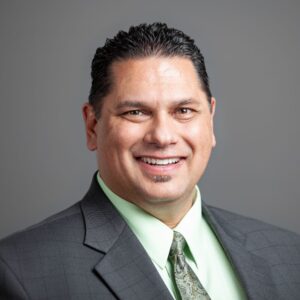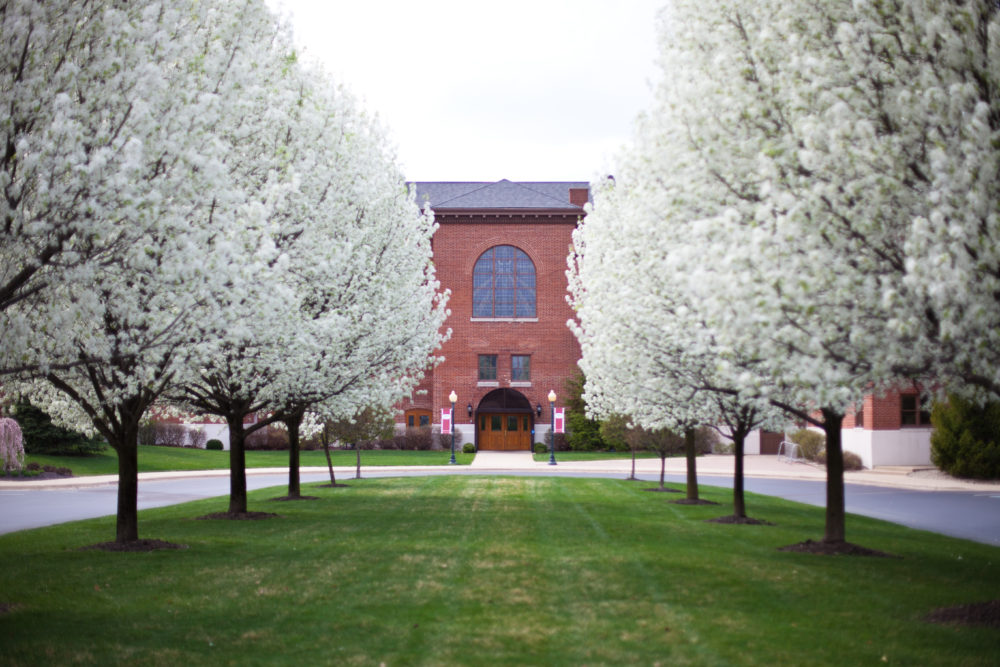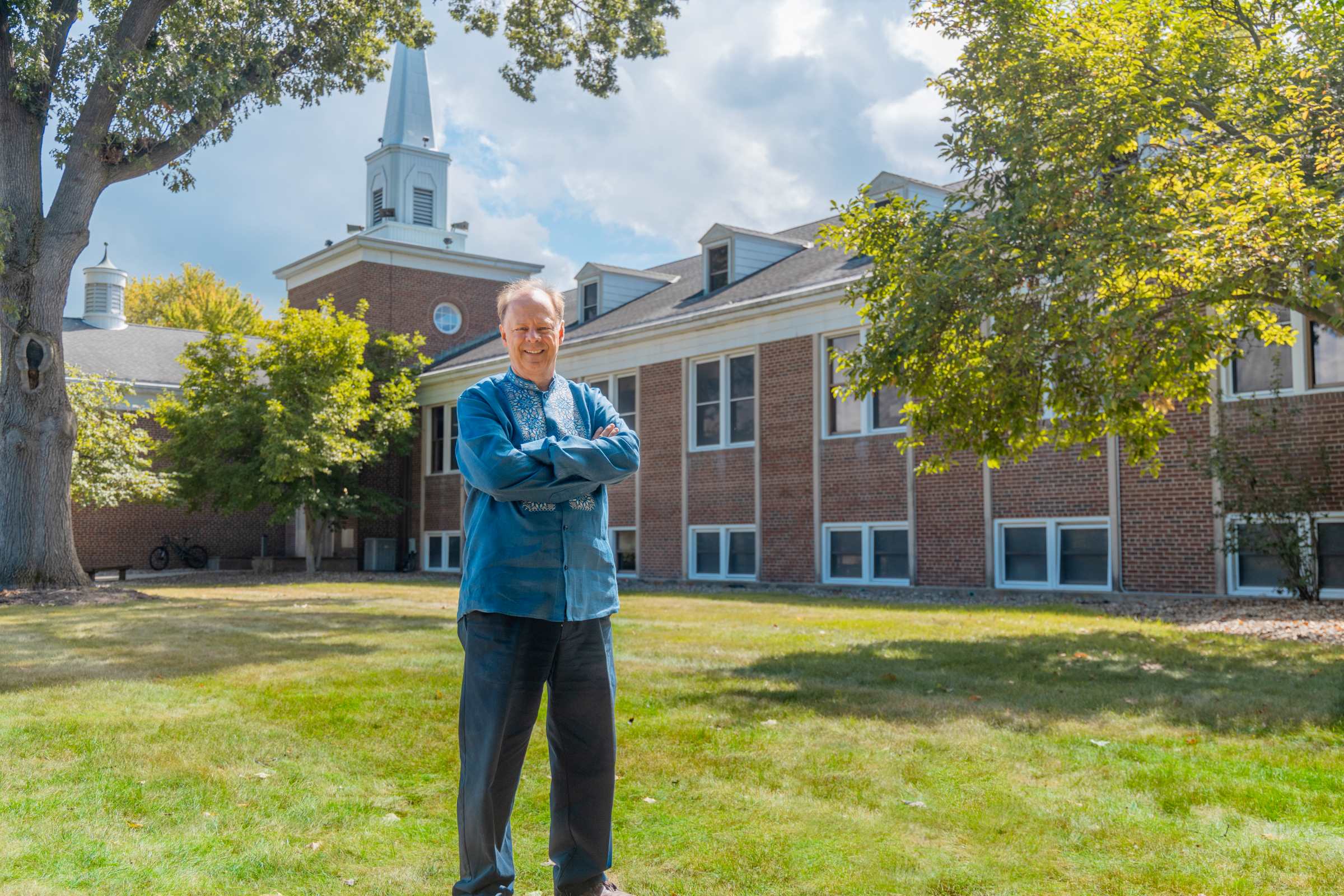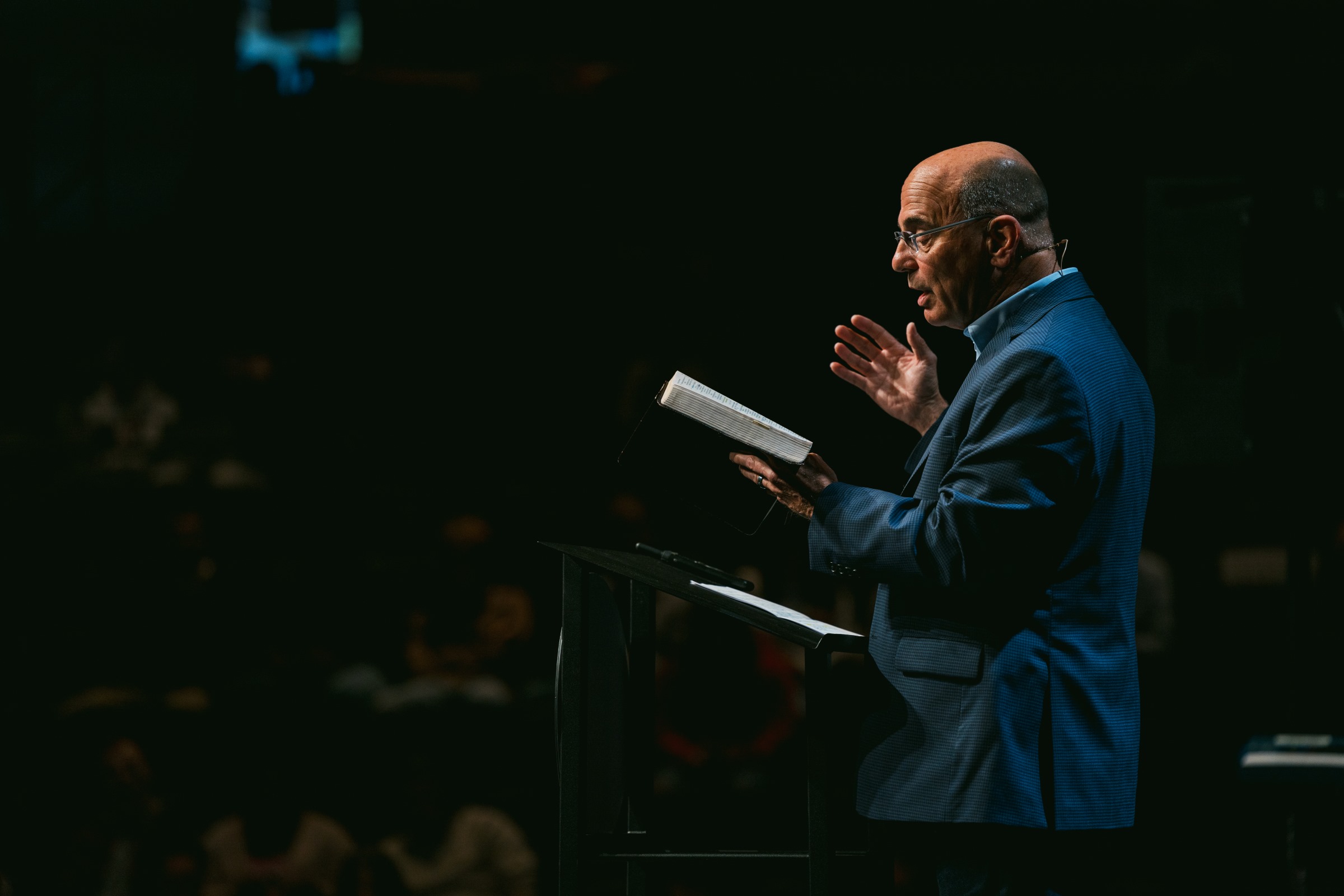May 21, 2021
Understanding the Difference between Master of Ministry vs Master of Divinity Degrees
Written By Grace Theological Seminary
Tagged With Master of Divinity Master of Arts Dr. Freddy Cardoza

A common misunderstanding about seminary education is the idea that all seminary degrees are the same. But that isn’t the case. Not at all.
Seminaries offer post-baccalaureate degrees and certificates. Degrees are complete academic programs that are credit-bearing. They are certified or “transcripted” by the school as official formal educational degrees. Certificates are abbreviated courses of study that may or may not include official credit-bearing courses, typically offered for those who are not seeking a career or official credentials, but who want some form of substantial training for ministry.
These distinctions should not lead you to believe that it’s a master of ministry vs a master of divinity when considering which one you should pursue. Let’s take a look at the unique aspects of both degrees.
Seminary Degrees
Within the category of formal degrees, seminaries offer master’s degrees of two types, sometimes three: Master of Divinity (MDiv) programs, Master of Arts (MA) programs, and Master of Theology (ThM) programs. Beyond these, many seminaries offer post-graduate or doctoral programs. These doctorates may specialize in Ministry (DMin), education (EdD), missiology (DMiss), intercultural studies (DIcs), music arts (DMA), theology (ThD), and philosophy (Ph.D.).
In this article, we’ll learn about the two most common seminary degrees, the Master of Ministry vs Master of Divinity, which are also the subject of considerable confusion for many.
The Master of Divinity
What is a master of divinity?
Divinity Degrees are, not surprisingly, mostly about the “divine”. Master of Divinity (MDiv) is when one ‘masters’ various subjects within the field of ‘divinity.’ These areas center primarily on the study of God, or upon special revelation. Special Revelation has to do with the miraculous and supernatural ways that God has made Himself known—through the inspiration of Scripture and the Person of Jesus Christ, for example.
For this reason, Divinity Degrees, like the Master of Divinity, focus on preparing ministers at the highest level, especially for preaching, pastoral, and missions ministry.
In order to do this, divinity students are expected to study in areas including the original biblical languages, a substantial amount of Bible and theology, Bible interpretation (hermeneutics and exegesis), and other topics related to the work of pastoral ministry such as counseling, leadership, and ethics, among others.
Upon completion, Divinity grads have a working knowledge of biblical Hebrew and Greek, the books of the Bible, Christian doctrine, and skills in Bible interpretation, preaching, and pastoral counseling. In addition, many also have training in specialized fields such as pastoral studies, chaplaincy, Christian ministry, intercultural studies, women’s leadership, and so on. This degree is especially useful for those whose primary work will be the preaching and teaching of God’s Word as the main responsibility of their work.
As a rule, the M.Div. is a program comprised of 72-96 credit hours at the graduate level. At Grace Seminary, our M.Div. is 75 units (81 if one has not already taken basic Greek). Depending on how many courses students take, this program can be completed in 3.5 to 6 years, though many complete it in 4-5 years on average.
The Master of Arts
Whereas Divinity Degrees focus on developing deep knowledge in divinity-type topics, Arts Degrees focus more on broad knowledge. This expansive curriculum covers a combination of the Bible, theology, and the liberal arts. Lots of people who take divinity degrees are planning to do some form of pastoral preaching or teaching ministry, whereas those taking arts degrees are usually focused on teaching in Christian higher education or serving in various areas of practical ministry. This diversity of degrees is due to the broad expanse of subjects in the area of liberal arts.
Master of Arts (MA) is when one ‘masters’ various subjects in the liberal arts. The curriculum in these programs typically includes basic graduate-level study in theology, Bible interpretation, introductory courses in Old and New Testament, discipleship, and personal spiritual formation. Students then work to master other areas common to the liberal arts by studying in areas like communication, history, leadership, education, discipleship, and teaching, as well as practical ministry areas.
Historically, Master of Arts degrees have been formally or informally described as either “academic” or “professional” degrees. Academic MAs are those that focus strictly on theology or the biblical languages, but that omit practical courses needed by pastors in local church ministry. Academic MAs are commonly sought by people who intend to teach as professors and to serve in higher education administration (others choose to take the more generalized Master of Divinity and then proceed into higher education).
Professional MAs, the other category within the Master of Arts, provide broad training in philosophy, history, education, and psychology, in addition to an area of specialization. These specializations are typically in an area of local church or parachurch-based ministry, including age-group ministries (like youth ministry, children’s ministry, and adult ministry), administration, camp ministry, urban studies, and much more.
As you can see, this isn’t about competition between a master of ministry vs a master of divinity, but about discovering your purpose. Since the Master of Arts does not require study in Hebrew, Greek, and exegesis (original language-based interpretation of the biblical text and individual Bible book study courses), Master of Arts is the typical degree chosen for those who do not anticipate serving primarily in congregational Bible teaching and preaching.
The needs of the local church, denominational agencies, educational institutions, Christian non-profits, faith-based organizations, and non-government agencies require very broad educational preparation across a host of fields. Accredited academic institutions like Grace Theological Seminary stand ready to provide leadership to these ministries in order to help equip leaders to advance the Kingdom of God, for the Glory of God.
Master of Ministry vs Master of Divinity: We’ll Help You Get the Right Education for Your Calling
Do you want to learn more about the master of ministry vs the master of divinity? Would you like assistance in discerning your calling or educational needs? We’re here to help. Just reach out to our admissions department and Director Rob Neufer (gtsrec@grace.edu), and we will do our part to help guide you toward the fulfillment of your calling through our many excellent seminary education programs. We look forward to hearing from you!
Freddy Cardoza
Freddy Cardoza, is the Dean of the School of Ministry Studies at Grace College and Vice President of Grace Theological Seminary. Freddy oversees the faithful execution of the mission and vision for the School of Ministry Studies. He is committed to advancing the Kingdom of God by expanding the size, reach, and impact of the school, faculty, staff, and the dynamic programs they offer. Freddy also serves as Professor of Christian Ministry and Leadership. In this capacity, he equips Christian leaders for ministry impact, and trains disciples to wield the Word of God and the power of God, for the glory of God.
Dr. Cardoza’s most recent scholarship includes the primary textbook entitled Christian Education: A Guide to the Foundations of Ministry (2019, Baker Academic).
Share
Tagged With Master of Divinity Master of Arts Dr. Freddy Cardoza



